FAQs: Landscaping With Aluminium & Steel
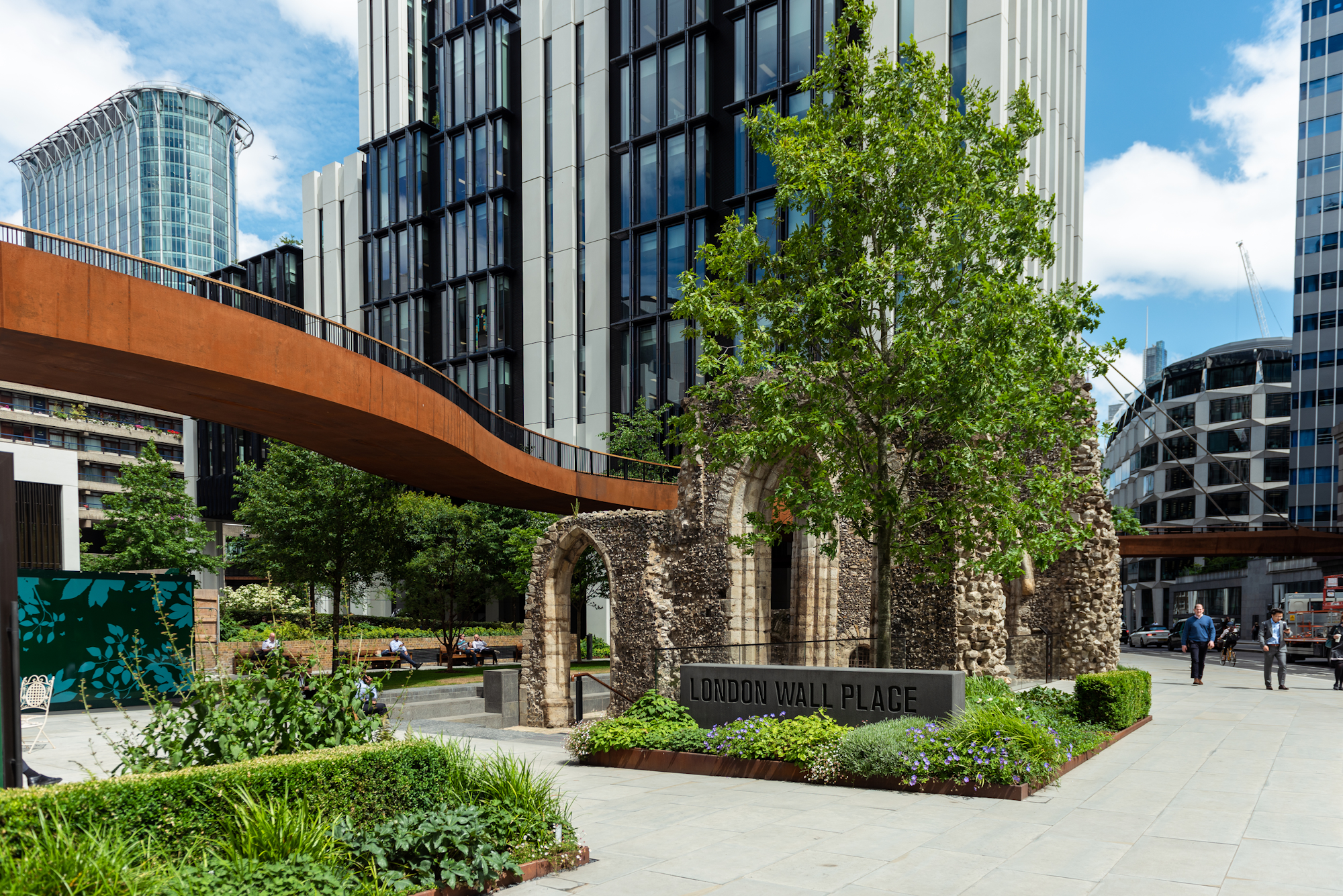
Countless generations of landscape designers have realised the aesthetic beauty of metal patination – the green-grey of verdigris on copper, the dull earthiness of aged bronze, the soft grey of old zinc or galvanised steel and more recently, the bright oranges and browns of Corten weathering steel – and have used it to great effect.
If chosen well, metals can also be strong and weather-resistant, versatile and low-maintenance, making them a perfect material for structural landscape design. Aluminium and steel are now the two most commonly used metals in landscaping, both for ornamental and practical purposes. Because of this, questions are often asked about their suitability for various applications.
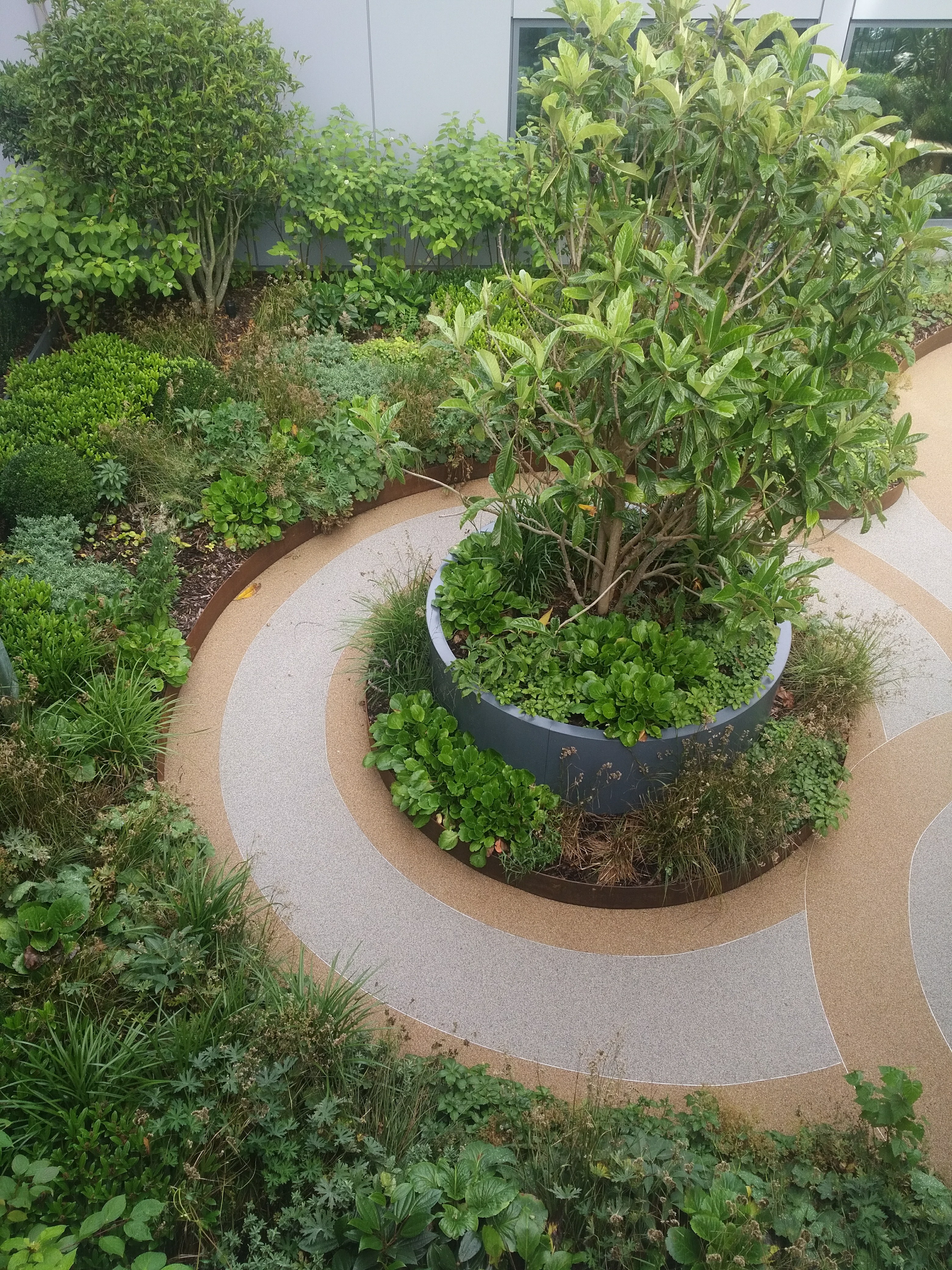
Frequently Asked Questions
1. What are the advantages of aluminium and steel versus other materials?
Aluminium and steel are both used in landscaping as alternatives to concrete, timber and plastic. One good example of this is pin kerbing – traditionally concrete – that is used to define the edges of paths and driveways.
Pin kerbing is laid on a solid concrete foundation and stabilised with concrete haunching – a heavy and time-consuming process. The acids present in concrete can also cause grass die-back along lawn edges and concrete is more susceptible to damage from frost or impact.
In contrast, aluminium and steel edging are both lighter in weight and require no foundation or haunching. Stakes driven into the ground hold the edging securely and allow paving or backfilling immediately after the edging has been installed.
While aluminium and steel edging is strong – heavy-duty steel edging is suitable for highway use – it can also be formed to create sweeping curves and intricate shapes, giving the landscape designer so many more options.
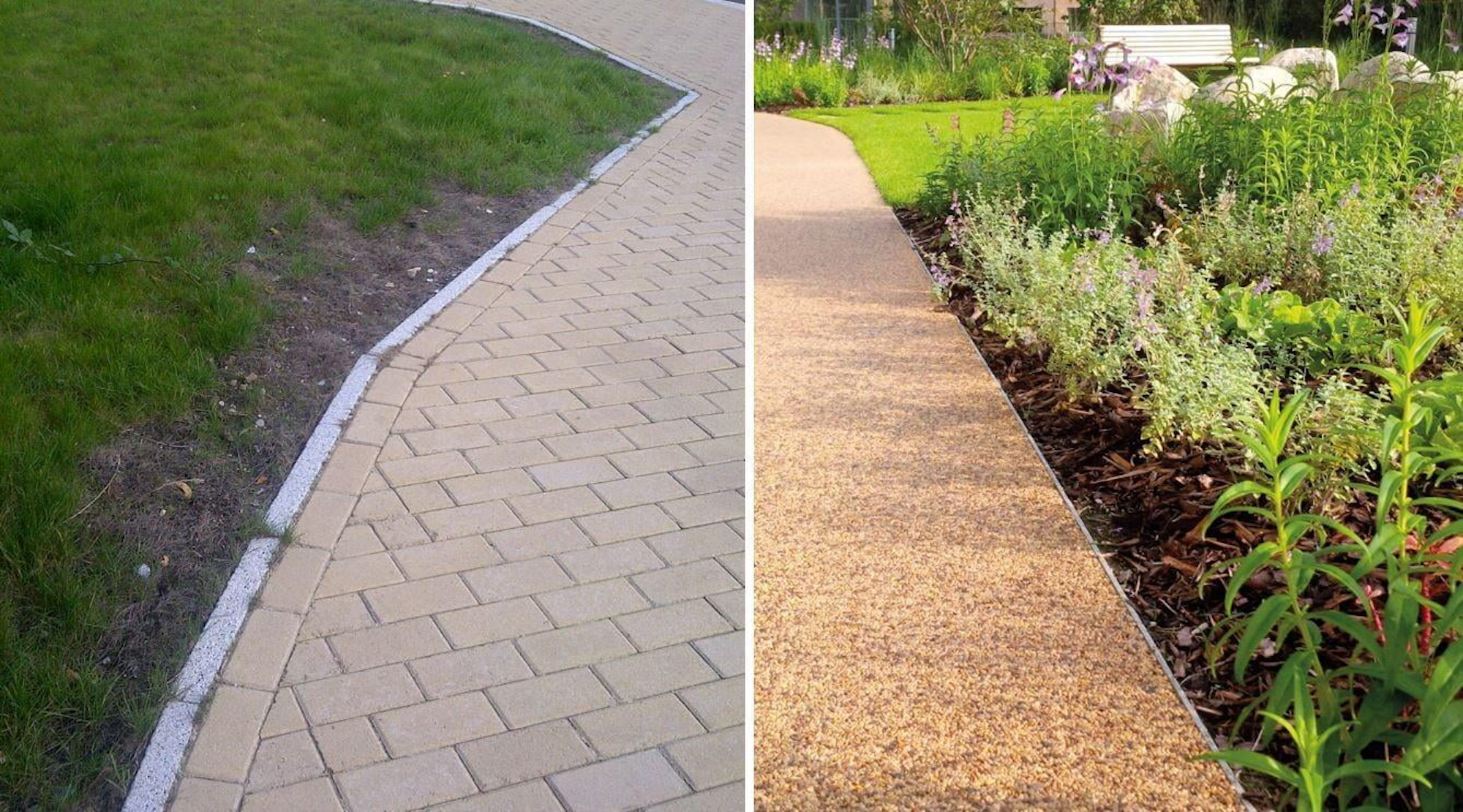
2. When is aluminium better than steel?
Aluminium is lighter than steel, easier to cut and form, and more corrosion resistant. It is a popular metal for light- to medium-duty landscape edging, where it can be used to define the edges of lawns, borders and paths. The light silver finish of aluminium can be attractive in appropriate settings and unless large areas of the surface are visible it doesn’t require any surface coating to protect it from deterioration.
3. Is aluminium maintenance-free?
It’s more accurate to say that aluminium is low-maintenance, as it is more resistant to corrosion than steel. To keep it in good condition and protect the surface from unsightly pitting, you may only need to regularly scrub it with a mild soap solution, rinse it off and let it dry.
If oxidation occurs, you will see a powdery white layer on the surface. Alkaline cleaning products will only make the oxidation worse, so avoid anything containing ammonia or trisodium phosphate. A simple answer is to wash it with a 50:50 mix of white vinegar and water, then rinse it down with plain water.
Aluminium landscaping products may also be coated with a clear lacquer or powder coated, either to change the colour or add a further layer of protection. If so, it’s a good idea to periodically check the surface for any chips or cracks. Repairing these will prevent the damage from spreading further.
4. Is aluminium toxic?
Yes, aluminium does contain toxins, but these normally present no danger to humans, animals or the environment. However, if you are growing fruit or vegetables in a planter or raised bed, it would be safer to use a steel planter or edging product, as the toxins can leach into the soil and may contaminate the produce.
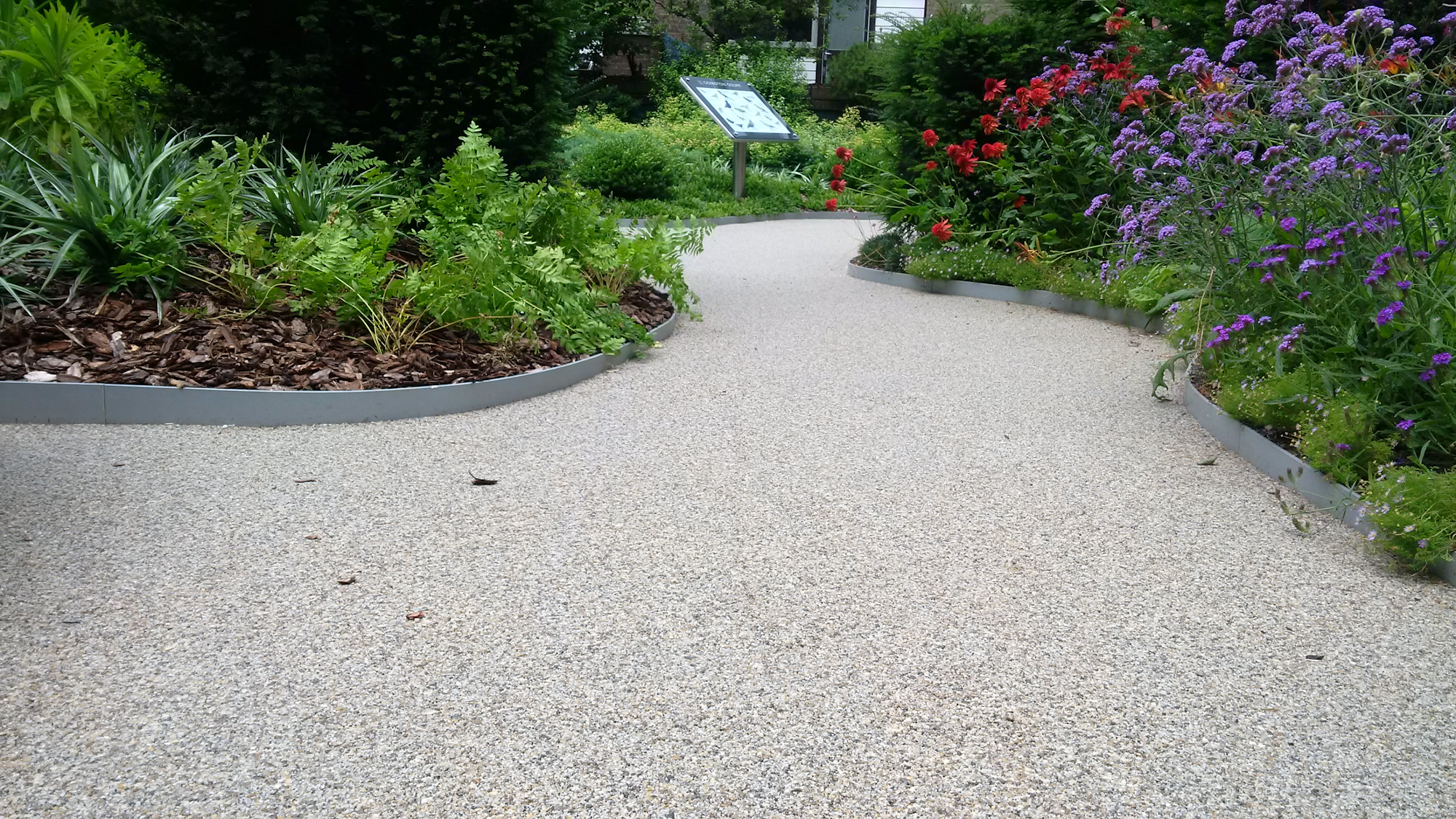
5. When is steel better than aluminium?
Steel’s advantage is in its strength, making it the preferred material for planters and planter walls. Steel landscape edging is used for heavier-duty applications such as the edges of driveways and lawn edges where heavy grounds maintenance machinery is used.
Steel
6. Why doesn’t Corten steel rust like other steel?
To protect steel against corrosion it is often powder coated. Where a more natural look is required, Corten weathering steel is often used. This is a dull grey when new and acquires its characteristic orange-brown patina over a few months. Although the patina is oxidation (rust), it creates a fine protective layer that prevents further corrosion of the underlying steel. This is because the alloy used to create Corten steel is of a different composition than standard mild steel.
7. How do I prevent Corten steel from staining surrounding stone or concrete?
One disadvantage of Corten steel is that the weathering process discolours any water runoff. If this spreads onto light-coloured or porous surfaces it can stain them. There are, however, ways to reduce this risk.
Pre-weathering the steel before installation will ensure most of the oxidation has occurred before the steel comes into contact with other materials. This process can be accelerated by applying chemicals to the surface of the steel.
Creating a gravel border between the steel and surrounding surfaces will also allow water to drain away rather than spread to the surfaces.
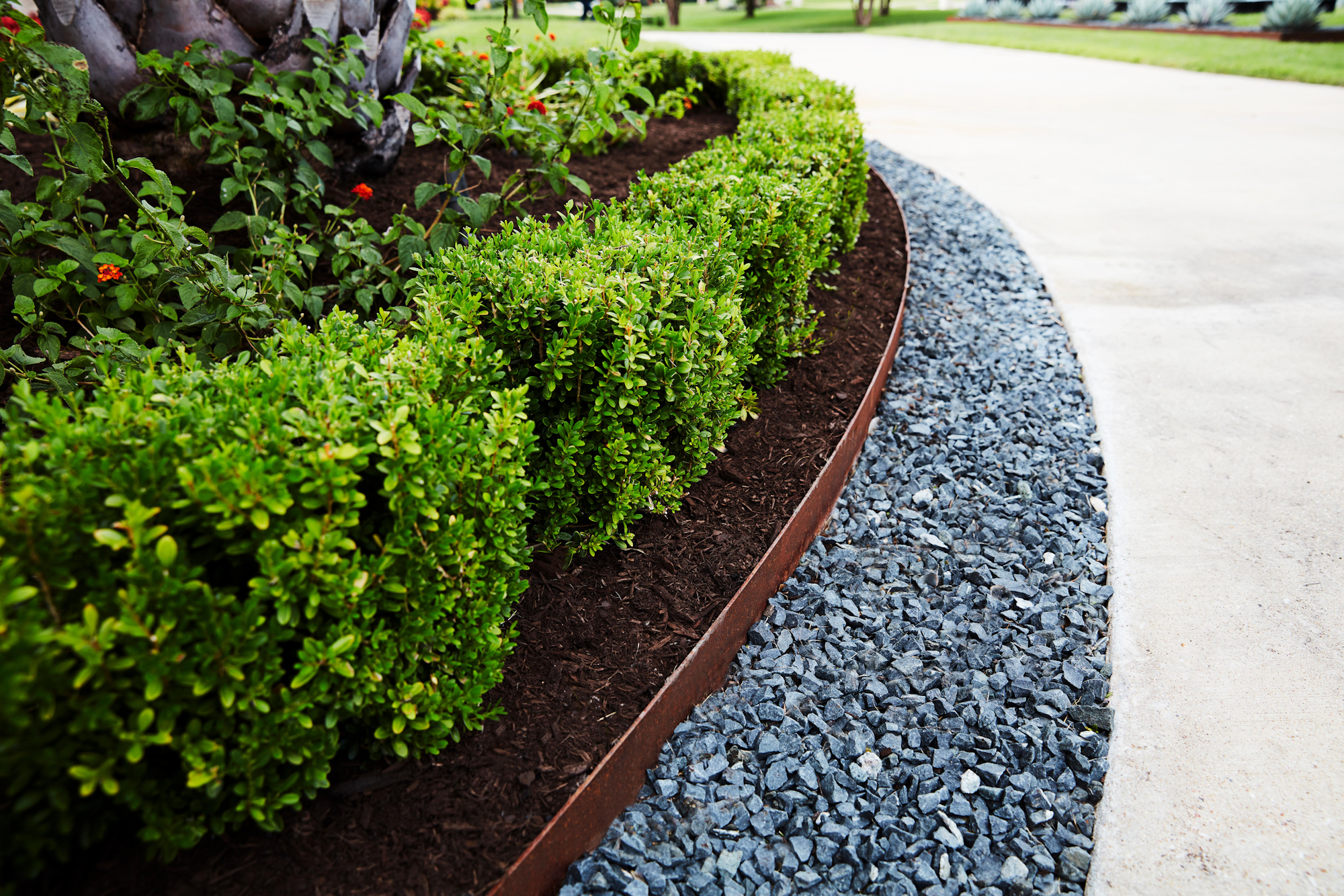
8. How much maintenance does steel require?
While steel is more prone to corrosion than aluminium, landscaping products made from high-grade steel require little maintenance.
As we have already seen, the oxidation layer of Corten steel will, under normal circumstances, be sufficient protection for the underlying steel.
Powder-coated steel is also highly resistant to corrosion. As a further precaution against corrosion, avoid damaging the powder coating while installing the product. If any damage should occur that exposes the bare metal, immediately repair the damage with an automotive touch-up paint (the manufacturer should be able to give you the RAL colour reference of the powder coating for an exact match).
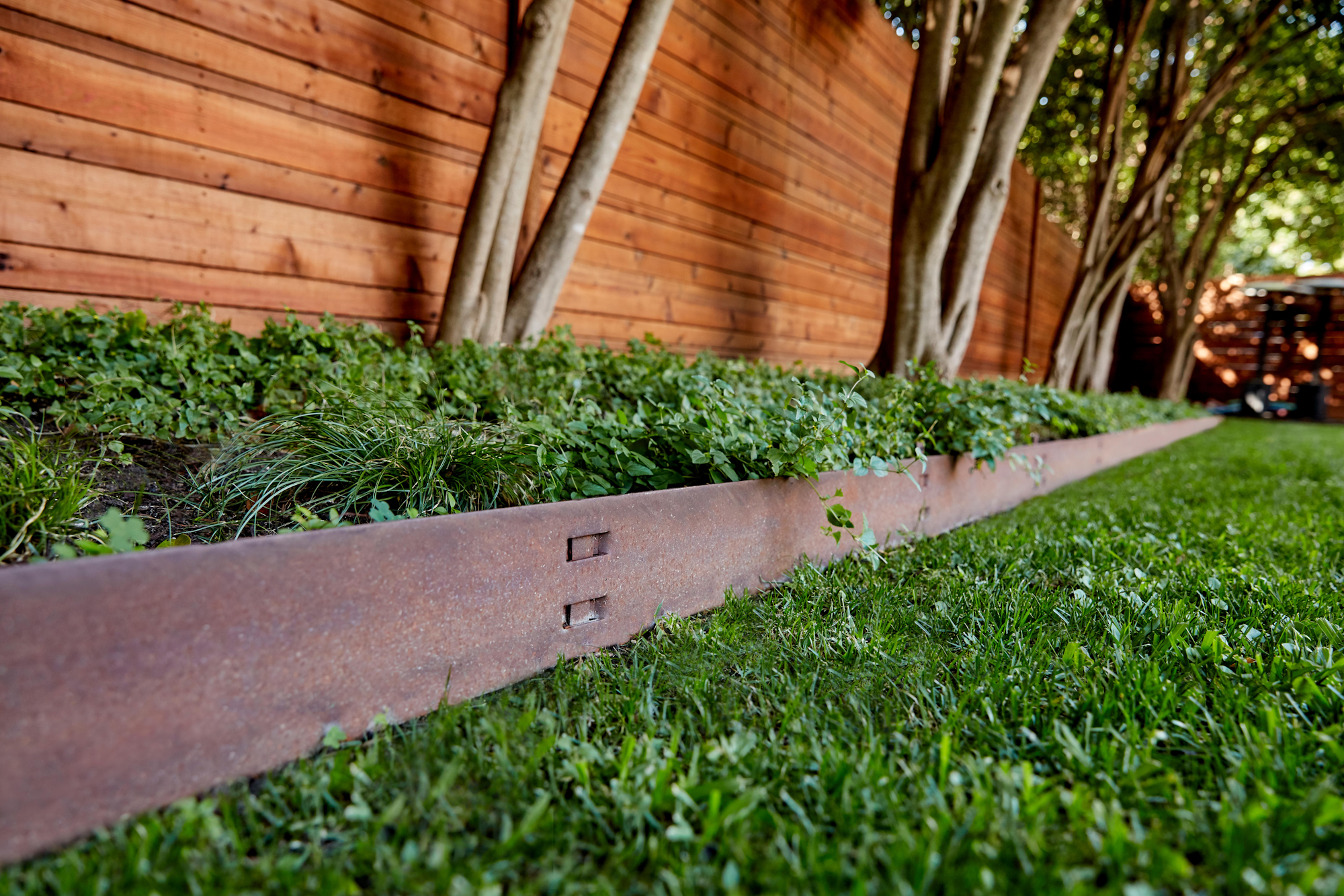
Kinley is the leading UK designer and manufacturer of aluminium and steel landscape edging products. If you are considering using aluminium or steel edging for the first time or have a project you would like to discuss with us, give us a call on 01580 830688 or email us at sales@kinley.co.uk.